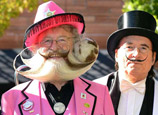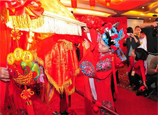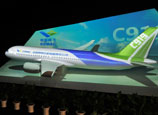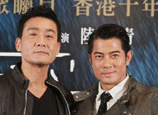
Meanwhile, Li argues that building a complete personality before the age of 6 tops the agenda in children's pre-school education. "Is it possible that a kid who has a strong ability to adapt to different environments and an ability for creative learning finds it difficult to get used to China's mainstream primary education, and is it possible that a passionate person with independent thinking and a strong problem-solving ability is not wanted by any companies?" said Li.
Acknowledging that it will take time for his son Lele to get used to the new environment at a public primary school, in which even students' sitting postures are strictly regulated, Zhao Lei still feels grateful for the education his son received at Ba Xueyuan.
"Lele was shocked by these rules. It was a painful period, but we feel his ability to adapt to a new environment helped him get through it quickly," said the proud father.
For mother Xin Xuhui, her son Zhu Jiangqiu was definitely not a top student in terms of academic performance at his class in a public school, especially in the first two years when he found it hard to catch up with the others, but Xin believes that is not the most important thing. "In my eyes, my son is just a very sunny and optimistic kid, who knows how to deal with problems in his own way, has his own opinions and never goes with the crowd," said Xin.
Future prospects
As Chinese parents grow increasingly anxious about their children's academic achievements, educators say it's time for Chinese education to return to its nature.
"The purpose of education has never been to distinguish winners from losers, but to cultivate, develop and perfect a human being," said Lu Linyue, President of the Zhejiang International Studies University.
However, despite Ba Xueyuan's concept of pre-school education gaining wider recognition, Li feels uncertain about the future of her kindergarten. "It's always a big challenge for us to find qualified teachers who know how to love children, especially when a child could change every minute," said Li, who feels the lack of teachers will make it difficult for her school to expand.
And most Chinese parents will still need a lot more persuading before they accept the ideas put forward by these non-mainstream approaches.
"The best preschool is defined by the values that the parents want for their children. Do parents want their children to pass exams or do they want them to be curious, make mistakes, take risks, and voice their opinions and concerns? The decision is theirs to make," Sovandara Chhin, with the Montessori Country School at Bainbridge Island, Washington, told the Global Times in an email.
Li worries that her school will finally end in failure in this fledgling market, where many profit-driven schools are just imitations that don't truly respond to children's needs.
"I do feel puzzled when I see so many schools advocating Montessori education in China. I just wonder how many of them are truly trying to integrate the core concept of the method into their teaching, or simply hanging up a signboard just to make money," said one mother.

















 Heavy snowstorm wreaks havoc in NE China
Heavy snowstorm wreaks havoc in NE China


![]()
